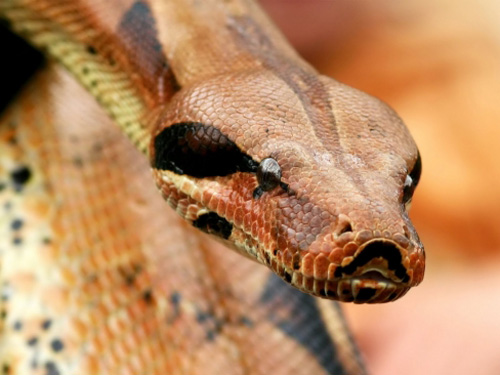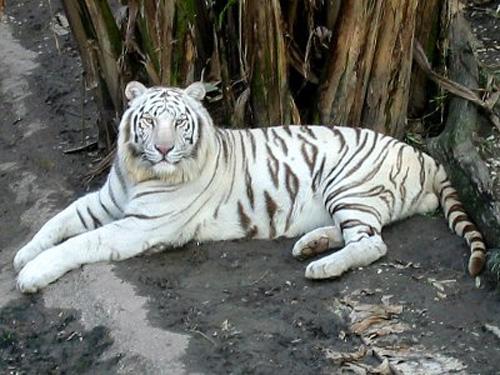As some readers may know, I’ve been slowly compiling a series of articles about exotic pets and how to care for exotic pets. Due to some personal issues, I haven’t gotten those articles written quite as quickly as I’d like to. This week in Ohio though, an incident occurred that has shifted my focus from exotic pets people are able to safely keep as pets to those that don’t belong in captivity – at least not by people without proper training, experience and permits.

At the moment, no one really knows what happened in Ohio. Reports that have emerged following the escape or possible release of several potentially dangerous wild animals from a private residence have been conflicting to say the least. Before we briefly go over the rumors and possible motivations, let’s discuss what is known for sure. The man who owned the animals, Terry Thompson, was found dead at his home. The animals he cared for were able to get out of their enclosures resulting in somewhere between 48 and 51 wild animals running wild in Eastern Ohio.

We now know deputies for the Muskingum County Sheriff’s department had to kill several of the animals. One of the animals killed was a 300-pound Bengal tiger. After attempts to tranquilize the animal failed causing the animal to become agitated, deputies felt they had no choice. As much as it pains me to say this as an animal lover, I’m not sure they had much choice. The tiger was chasing neighbors’ horses and posed a serious threat to the safety of residents. The same can be said for the mountain lions, leopards, and grizzly bears that also escaped.

Authorities in the town knew Mr. Thompson kept an array of exotic pets but, despite a conviction on charges of animal cruelty, could not order the animals removed from his property because he had all necessary permits and was in compliance with the law. While there had been a law on the books prohibiting anyone convicted of animal cruelty from owning exotic pets, that law had expired, allowing Thompson to keep his animals.

Residents remember Thompson as somewhat aloof but many say he seemed like a nice person who loved animals. His animal cruelty conviction came after he was no longer able to climb a hill to feed and care for his cattle and bison that eventually died. From all other indications, Mr. Thompson took care of his animals to the best of his ability, until, of course, this week when things went so terribly wrong.

Thompson was found dead at the scene, apparently from a self inflicted wound although autopsy results are pending. If things are as they seem, Mr. Thompson opened the animal enclosures, opened the gates of his farm to allow the animals freedom and then committed suicide. The man likely had no way of knowing the animals would be killed but no one has any way of knowing for sure. Perhaps he felt he was giving them the best chance of survival. Many people who own large exotic pets feel that because they were raised by human beings they are no longer a threat to human beings. That sadly just isn’t the case. Just ask Roy or Sigmund and Roy fame, the man nearly mauled to death by a tiger he raised, trained and trusted and the countless other people killed or maimed by their beloved ‘pets’.

What happened in Ohio this week has underscored a point I’ve been trying to make with my exotic pets articles. There are many, many exotic animals that make wonderful pets. The allure of exotic pets is of course very strong and understandable, especially for animal lovers. If you really love animals though, you need to do what is best for animals.

Regardless of how careful you are when building a habitat from a wild animal and regardless of how careful you are when locking gates and doors, you need to understand that escapes can happen. If that happens, authorities may not be trained to deal with such large, escaped animals and some of them may be killed. Your average police officer is not trained to deal with an escaped tiger and if that tiger behaves as tigers do and starts hunting, the situation goes from inconvenient to dangerous very quickly. If you love your animals, you need to let the people trained to deal with them look after them.

I’m not going to get into the ethical qualms I have with zoos. Some of the world’s zoos do great work, sustaining endangered animals, caring properly for all of the animals they have and offering an environment that closely matches the animal’s natural environment. That isn’t the case with all zoos. Wild animals shouldn’t be used as a means of entertainment and they shouldn’t be kept by people who aren’t absolutely positive they can keep those animals safe. Owning a pet is a responsibility. When you take a pet into your home and into a life you are making a promise to do everything in your power to give that animal what it needs. For most people, that is not a promise that can be kept when it comes to wild animals.

So what can you do to help the exotic animals of the world – many of which find themselves either on the endangered species list due to the degradation of their natural habitats? You can stay up to date on environmental concerns and animal rights issues by joining the Ian Somerhalder Foundation. The ISF enables you to sign online petitions that have made a difference in several cases of animal rights violations and have shed light on various environmental concerns that impact the animals we love.

I would like to recommend adopting an animal from the World Wildlife Fund (WWF). Adoption varies in price from $25-$250 with each option offering a little more for your adoption fee. Check out your options here and learn a little more about what adopting an animal from the WWF can do for an animal you love. You can also make donations to the foundation or browse the shop for all sorts of wonderful gift ideas. Remember, adoptions make wonderful gifts for friends, family members or writers that would love to add another adoption certificate to their desk. The WWF accepts all major credit cards as payment.
In exchange for adopting an animal, you (or the gift recipient) will receive:
- An adoption certificate
- A full color photo of the animal you’ve adopted
- A plush likeness of the animal you’ve adopted (adoption packages of $50 or more)
- A frame for your certificate and photo (adoption packages of $100 or more)
- A printable, personalized adoption certificate (via e-mail should you provide an e-mail address)
- High resolution desktop images of the animal (via e-mail should you provide an e-mail address)
- IM icons of the animal. (via e-mail should you provide an e-mail address)
There are also various bonus items you can receive should you make an additional donation. It’s a wonderful cause and you’ll be able to take pride knowing you’ve helped the animal you love without putting it in danger. Remember wild animals are not exotic pets – they’re wild animals and should always be treated with respect and allowed to live in a safe and happy environment.











